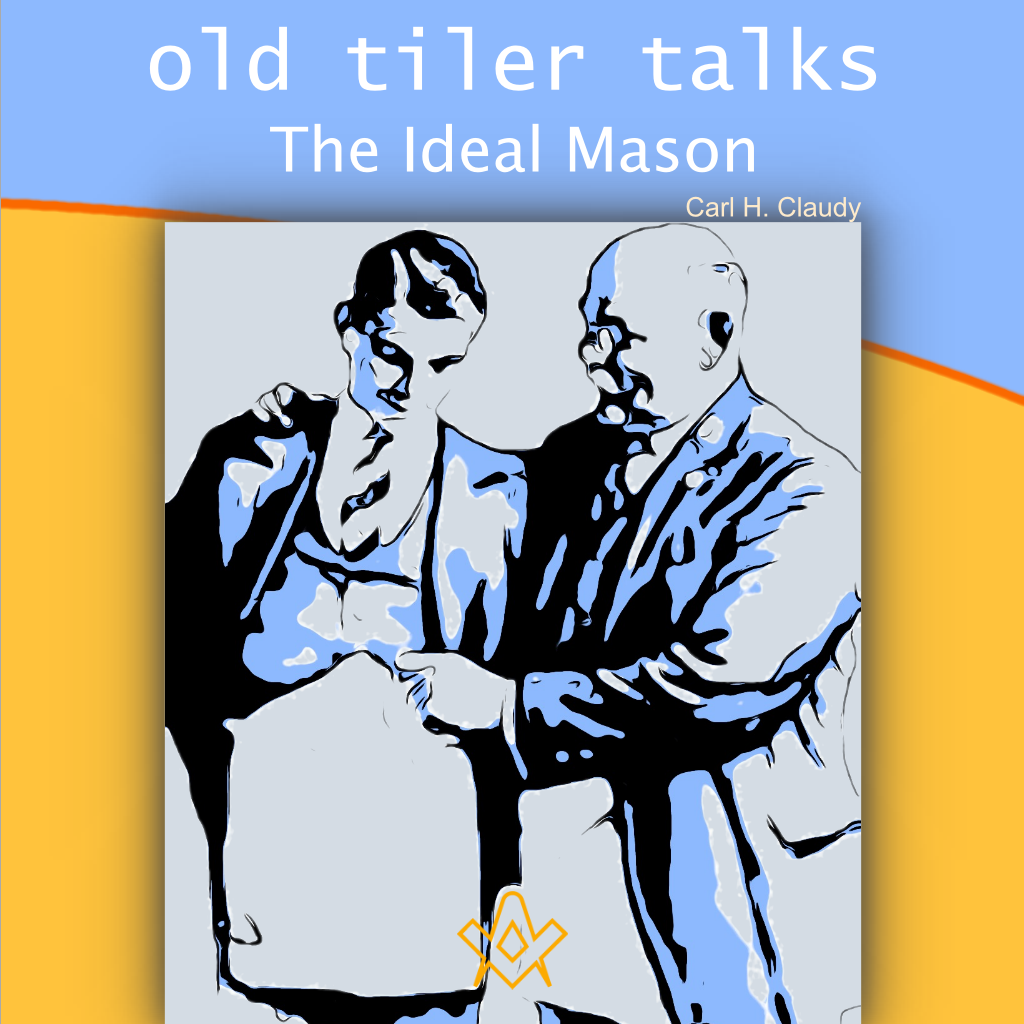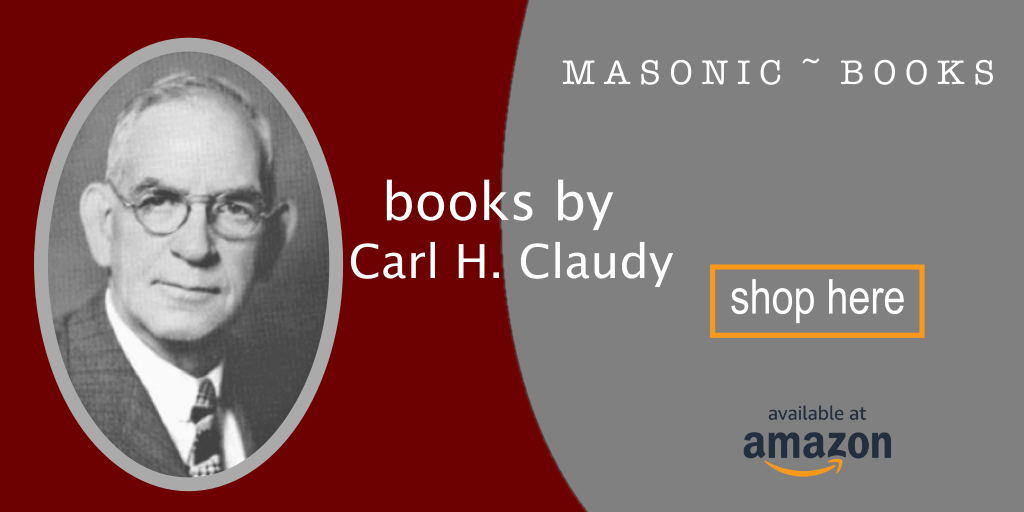The Old Tilers talks first published in 1925, by Carl Claudy, is a series of short anecdotal stories told in the setting of a new member asking an old tiler for his opinion on various masonic topics.
These short articles are still very relevant, 100 years on, and hopefully provide some insight to new members today.
“So you think Brother Parkes is an ideal Mason, do you?” asked the Old Past Master of the Young Brother.
“I like Brother Parkes, but before I gave assent to your adjective of ‘ideal’ I’d like to have you define it.”
“What I meant,” answered the Younger Brother “was that he is so well rounded a Mason. He is Brotherly, charitable, loves a good speech and a good time, and does his Masonic duty as he sees it.”
“Oh! Well, if that’s being an ideal Mason, Parkes is surely one. But I can’t follow your definition of ideal.
For there are so many ideals in Freemasonry, and it has been given to few…I doubt, really, if it has been given to any…man to realize them all. Certainly I never knew one.
“There are so many kinds of Masons! I do not refer now to the various bodies a brother may join; Chapter, Council, Commandery, Scottish Rite Lodge, Chapter, Council, Consistory, Shrine, Grotto, Tall Cedars, Eastern Star; a man may belong to them all and still be just one kind of Mason.
“When I speak of ‘kinds’ of Masons I mean ‘kinds of ideals’.
“There is the man whose ideal of Masonry is ritual. He believes in the ritual as the backbone of the fraternity. Not to be letter perfect in a degree is an actual pain to him; he cares more for the absolute accuracy of the lessons than the meaning in them.
His ideal is a necessary one, and to him we are indebted for our Schools of Instruction, for our accuracy in handing down to those who come after us, the secret work, and to a large extent, for what small difficulties we put in the way of a candidate, by which he conceives a regard for the Order.
What is too easily obtained is of small value. Making a new Mason learn by rote some difficult ritual not only teaches him the essential lessons, but makes him respect that which he gets by making it difficult.
“There is a brother with the social ideal of Masonry. To him the Order is first a benevolent institution, one which dispenses charity, supports homes, looks after the sick, buries the dead, and, occasionally, stages a ‘ladies night’ or a ‘free feed’ or an ‘entertainment’.
He is a man who thinks more of the lessons of brotherly love than the language in which they are taught; as a ritualist, he uses synonyms all the time, to the great distress of the ritually-minded Mason.
To the social ideal of Masonry and those to whom it makes its greatest appeal we are indebted for much of the public approbation of our Order, since in its social contacts it is seen of the world.
“There are brethren to whom the historical, perhaps I should say the archaeological ideal, is the one of greatest appeal.
They are the learned men; the men who dig in libraries, read the books, who write the papers on history and antiquity.
To them we are indebted for the real, though not yet fully told story of the Craft. They have taken from us the old apocryphal tales of the origin of the Order and set Truth in their places; they have uncovered a far more wonderful story than those ancient ones which romanticists told.
They have given us the right to venerate our age and vitality; before they came we had only fables to live by.
To them we owe Lodges of Research, histories, commentaries, the great books of Masonry and much of the interpretation of our mysteries.
“Then there is the symbolist. His ideal is found in the esoteric teachings of Freemasonry. He is not content with the bare outline of the meaning of our symbols found in our lectures-he has dug and delved and learned, until he has uncovered so great a wealth of philosophical, religious and fraternal lessons in our symbols as would amaze the Masons who lived before the symbolist began his work.
“To him we are indebted for such a wealth of beauty as has made the Craft lovely in the eyes of men who otherwise would find in it only ‘another organization.’
To him we are indebted for the greatest reasons for its life, its vitality. For the symbolist has pointed the way to the inner, spiritual truths of Freemasonry and made it blossoms like the rose in the hearts of men who seek, they know not what, and find, that which is too great for them to comprehend.
“These are but other ideals of Freemasonry, my son, but these are enough to illustrate my point. Brother Parkes follows the social ideal of Freemasonry, and follows it well.
He is a good man, a good Mason, in every sense of the word. But he is not an ‘ideal’ Mason. An ‘ideal’ Mason would have to live up to, to love, to understand, to practice, all the ideals of Freemasonry. And I submit, it cannot be done.
![]()
“What’s your ideal of Freemasonry?”
– asked the Younger Mason curiously, as the Old Past Master paused.
“The one from which all the things spring,” was the smiling answer.
“I am not possessed of a good enough memory to be a fine ritualist; I don’t have time enough to spare for many of the social activities of Masonry, I am not learned enough to be historian or antiquary, nor with enough vision to be an interpreter of symbols for any man but myself.
My ideal is the simple one we try to teach to all, and which, if we live up to it, encompasses all the rest; the Fatherhood of God, and the brotherhood of man.”
Article by: Carl H. Claudy
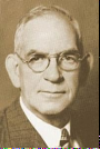
Carl Harry Claudy (1879 – 1957) was an American author, magazine writer, and journalist for the New York Herald.
His association with Freemasonry began in 1908, when, at the age of 29, he was raised a master Mason in lodge Harmony No. 17 in Washington, DC. He served as its master in 1932 and eventually served as Grand Master of Masons in the District of Colombia in 1943.
His Masonic writing career began in earnest when he became associated with the Masonic service Association in 1923, serving as associate editor of its magazine, The master mason, until 1931.
Under his leadership the service Association was brought to a place of predominance through his authorship and distribution of the short talk bulletin which made his name familiar to virtually every lodge in the country.
 Old Tiler Talks - Eyes Lifted High The Old Tiler Talks first published in 1925, by Carl Claudy, is a series of short anecdotal stories told in the setting of a new member asking an old tiler for his opinion on various masonic topics. These short articles are still very relevant, 100 years on, and hopefully provide some insight to new members today. |
 Old Tiler Talks - Masonic Libraries The Old Tilers talks first published in 1925, by Carl Claudy, is a series of short anecdotal stories told in the setting of a new member asking an old tiler for his opinion on various masonic topics. These short articles are still very relevant, 100 years on, and hopefully provide some insight to new members today. |
 Old Tiler Talks - So Many Rascals "Why are there so many rascals in the Fraternity, and why don't we turn them out?" a new member voiced to the old tiler for his opinion. These short articles are still very relevant, 100 years on, and hopefully provide some insight to new members today. |
 Old Tiler Talks - The Greatest Work The Old Tiler asked, "what is the greatest work of Masonry?" The New Brother sat by the guardian of the door and pulled out his cigar case. - Another instalment of wisdom by Carl Claudy, The Greatest Work |
 Old Tiler Talks - Why Men Love Freemasonry The 'Old Tiler Talks' first published in 1925, by Carl Claudy, is a series of short anecdotal stories told in the setting of a new member asking an old Tiler for his opinion on various Masonic topics. These short articles are still very relevant, 100 years on, and hopefully provide some insight to new members today. |
 Old Tiler Talks - Seeking a Little Light The Old Tilers talks first published in 1925, by Carl Claudy, is a series of short anecdotal stories told in the setting of a new member asking an old tiler for his opinion on various masonic topics. These short articles are still very relevant, 100 years on, and hopefully provide some insight to new members today. |
 The new mason laments that practically speaking, Masonry is a failure, and it depresses me … Masonry cannot be a failure, because men fail as Masons. The Old Tilers talk by Carl Claudy |
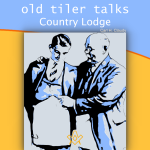 Old Tiler Talks - Country Lodge A lesson in the importance of an open mindset to observe, not to judge, but to learn and accept that we can achieve the desired outcome employing a different process. by Carl Claudy |
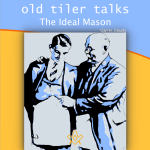 Old Tiler Talks - The Ideal Mason "What's your ideal of Freemasonry?" asked the Younger Mason - A short anecdotal story told in the setting of a new member asking an old tiler for his opinion on various masonic topics by Carl Claudy |
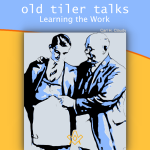 Old Tiler Talks - Learning the Work A short anecdotal story told in the setting of a new member asking an old tiler for his opinion on various masonic topics by Carl Claudy |
 Masonic first appointments and promotions might appear to be inequitable for one point a view, but some times, one point does not show the whole picture. A perfectly articulated story by Claudy, we should not compare one persons abilities with another. |
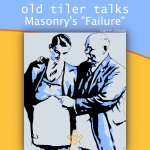 Old Tiler Talks - Masonry's 'Failure' Masonry fails because it doesn’t interest men sufficiently to make them practice what they preach. A perfectly articulated story by Claudy Masonry does not fail men. Men fail Masonry. Masonry has the teachings. |
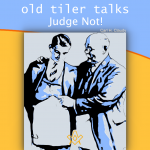 A perfectly articulated story by Claudy reminds us of a lesson from the Second Degree Charge; in the decision of every trespass against our rules, judge with candour, admonish with friendship, and reprehend with mercy. |
 Old Tiler Talks - A Masonic Speech A Masonic Speech - I can tell you the essence of appeal. It is drama. If you want your hearers to hang on your words, dramatize your subject |
 Old Tiler Talks - A Mason's Christmas A Mason's Christmas - Do you believe in Christmas celebrations should be held by the lodge ? Should members be asked to contribute to one and engage in Christmas festivities ? What is the old tilers take on this ? |
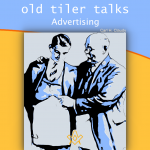 Advertising - We would do more good in the world if we advertised ourselves more… Why ? |
 Uncover the mystery behind one of the oldest and most widespread symbols denoting God. |
 Do you want to discover the originals of the five points of fellowship ? |
 The mystery behind the two great pillars that stood at the porchway entrance of King Solomon Temple |
 Three numbers, what are their masonic significance? Pythagoras has something to say about them |
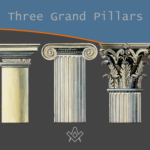 What are the Three Grand Pillars ?, wisdom, strength, and beauty - then later we hear of the Doric, Ionic, and Corinthian columns |
 This emblem contains more real food for thought than any other in the lecture of the Sublime Degree. |
 The Hiramic Legend is the glory of Freemasonry; the search for that which was lost is the glory of life |
 How are the Fellowcraft's five steps connected the five senses of human nature |
 How to explain the principle tents of the craft to a newly made brother |
 What are the lesser lights and where are they placed on our Lodges |
 Like so much else in Freemasonry the Middle Chamber is wholly symbolic |
 In the true sense of the words Freemasonry is not a secret society but a society with secrets. |
 Three Great Lights – the Volume of the Sacred Law, the Square, and the Compasses |
 Entered Apprentice Lambskin Apron; More ancient than the Golden Fleece or Roman Eagle, more honourable than the Star and Garter ... |
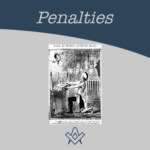 To the initiate, the penalty in his obligation comes with a shock of surprise and sometimes consternation. |
 What is a point within a circle |
masonic knowledge
to be a better citizen of the world
share the square with two brothers

click image to open email app on mobile device
Tubal Cain
Masonic Apron NFT
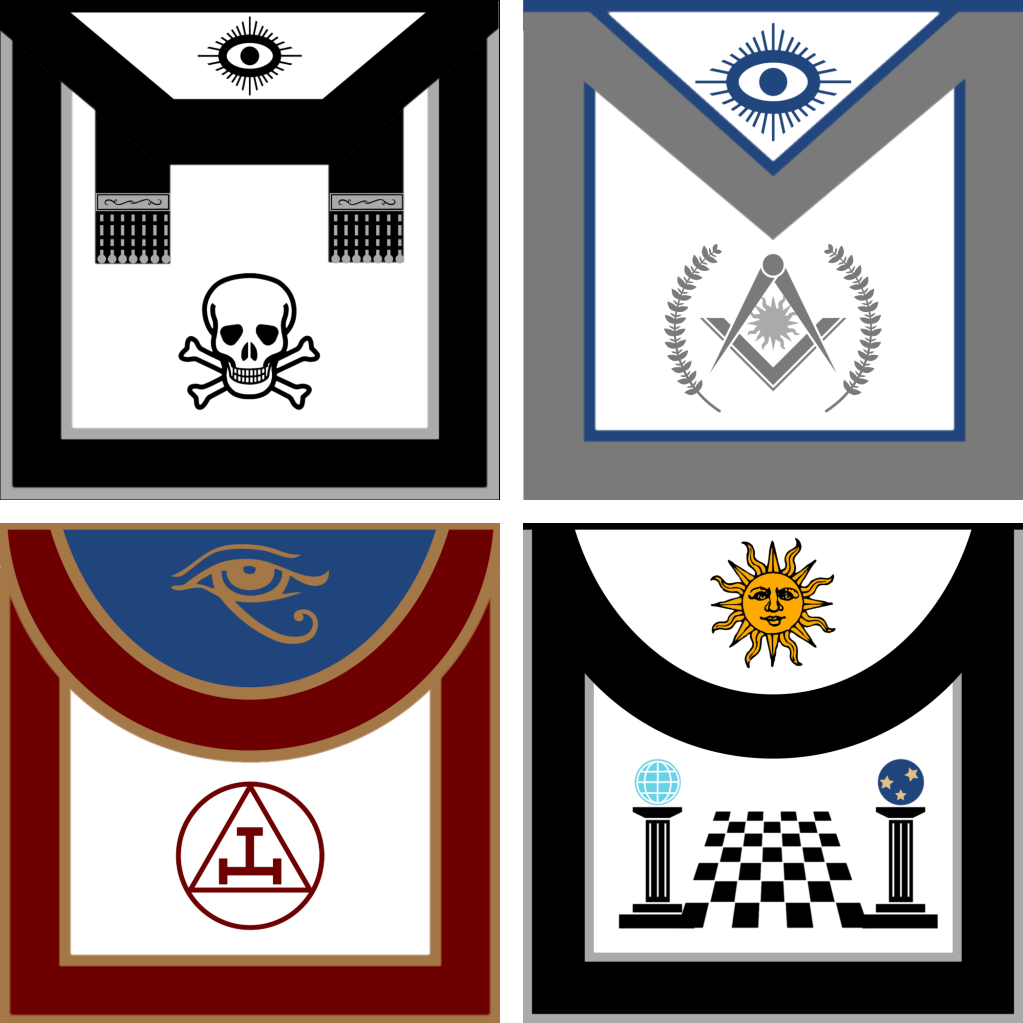


Each NFT includes the JPEG image plus a full size masonic apron and shipping worldwide
